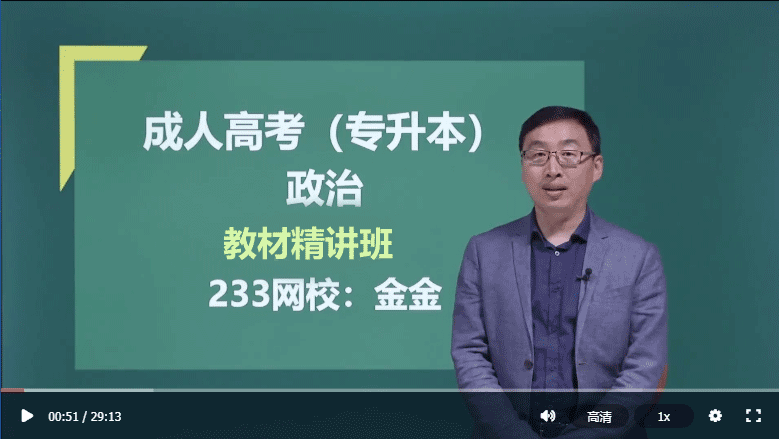цшфИхцЌшБшЏшЏцБфИшЏцГщЈхх
уу4яМщщхЎцЇхЎшЏфЛхЅ щщхЎцЇхЎшЏфЛхЅфИфИшНчЈх ГшшЏthat.фПЎщЅАфККцЖчЈwhoяМ whoseяМ whomяМ фПЎщЅАчЉцЖчЈwhichяМ whoseяМфПЎщЅАхАчЙхцЖщДчхшЏяМфИфНчЖшЏцЖххЋчЈwhereяМ when.хІяМ
ууWaterяМ which is a clear liquidяМ has many uses.
ууOur guideяМ who is a Chinese яМ is an excellent cook.
ууThey will fly to BostonяМ where they can plan to stay for four daysяМ and then go to New York.
ууHe picked up the bookяМ the cover of which had been torn.яМtear-tore-torn цшЃуцчЂяМ
ууHe is our English teacherяМ whose wife is a manager in a big firm.
уущщхЎцЇхЎшЏфЛхЅшПхЏфЛЅфПЎщЅАцДфИЊхЅхяМх ГшшЏхЊшНчЈwhich.
ууThe activity was postponedяМ which was exactly what we wanted.
ууThey have invited me to attend the partyяМ which is very kind of them.
уущхЎххЎшЏфЛхЅяМхІцфПЎщЅАчЉхЙЖххЎОшЏяМхщЂхцфЛшЏяМхЊшНчЈwhich. фНцЏхІцхЎшЏфЛхЅфПЎщЅАчцЏфИхЎфЛЃшЏяМццЏonlyяМveryфЛЅххНЂхЎЙшЏяМхЊшНчЈthat.хЈщщхЎцЇхЎшЏфЛхЅфИфПЎщЅАчЉхЊшНчЈwhichяМфПЎщЅАфККхЊшНчЈwho.хІцщщхЎцЇхЎшЏфЛхЅфПЎщЅАцДфИЊхЅхяМх ГшшЏхЊшНчЈwhich.
ууas фЙхЏфЛЅхМхЏМхЎшЏфЛхЅяМхЄхsuchшПчЈухІяМ
ууBoy as he wasяМ he was chosen king.
ууHe was in such a fury as I have never seen.
ууLet's discuss only such questions as concern everyone of us.
уу1. August 15яМ 1999 was one of the greatest days in his life ______ he was accepted by a university.
ууA. while B. that C. which D. when
уучцЁ D
уу2. Our concert turned out to be a great successяМ _______ they had never expected.
ууA. what B. that C. when D. which
уучцЁ D
уу3. It was a cold winter nightяМ and there wasn't anyone _______ the boy could turn to for help in the street.
ууA. that B. which C. whom D. what
уучцЁ A
ууturn to sb. хцфККцБхЉ
уу4. All _____ is a continuous supply of fuel.
ууA. what is needed B. the thing needed
ууC. that is needed D. for their needs
уучцЁ C
уу5. Huang HongяМ ________ father is a taxi driverяМ studies computer science in the U.S.
ууA. her B. she's C. whose D. that
уучцЁ C
уу6. Mr. Li is going to visit the university ________ he studied 25 years ago.
ууA. where B. which C. that D. in where
уучцЁ D цЃчЁЎчцЁ in which
уучцЁ A
уу7. She had three sonsяМ all ________ became doctors.
ууA. of which B. which C. of whom D. who
уучцЁ C
уу8. The only thing _________ really matters to the children is how soon they can return home.
ууA. that B. which C. what D. /
уучцЁ A
уу9. тDo you know TomяМт
уутI think so. Isn't he _______ smokes incessantlyяМфИххАяМяМт
ууA. who B. the man C. the man who D. the person which
уучцЁ C
уу10. The seventeenth century was one ________ many significant advances were made in both science and philosophy.
ууA. in that B. in which C. whose D. of
уучцЁ B
уу11. English words are not always spelled ________.
ууA. the way they sound B. the way they to sound
ууC. the way they're sounding D. as they are sounding
уучцЁ A
уу12. Angel was the first girl ________ when you got here.
ууA. you talked to whom B. you talked to
ууC. whom you talked D. who talked you
ууAчцЃчЁЎчцЁфИКwhom you talked to/to whom you talked to
уучцЁ B
уу13. He arrived lateяМ ________ was annoying.
ууA. what B. that C. which D. whom
уучцЁ C
уу14. She was extremely understandingяМ _______ helped to calm James down.
ууA. which B. it C. that D. this
уучцЁ A
уу15. I've never dined with youяМ sirяМ and I see no reason ________.
ууA. how should I now B. how I should now
ууC. why should I now D. why I should now
уучцЁ D
уу16. The letter _______ I mailed to my sister a month before Christmas has not yet reached her.
ууA. that B. which C. / D. all of the above
уучцЁ D
уу17. ________ is known to the worldяМ Mark Twain was a great American writer.
ууA. That B. Which C. As D. It
уучцЁ C
уу6.чЖшЏфЛхЅ
уучЖшЏфЛхЅхЏфЛЅчЈцЅшЁЈчЄКцЖщДухАчЙуцЁфЛЖухх учЎчучЛцушЁфИКцЙхМуцЏшОушЎЉцЅчу
уу1яМцЖщДчЖшЏфЛхЅ
уухИИчЈчх ГшшЏцwhenяМ wheneverяМ beforeяМ afterяМ whileяМ asяМ onceяМфИцІяМяМuntilяМ яМeverяМ sinceяМ as soon asчуцЖщДхцЁфЛЖчЖшЏфЛхЅфИшЁЈчЄКхАцЅчц хЕщхИИчЈфИшЌчАхЈцЖухІяМ
ууWhen you cross a roadяМ you must be careful.
ууIt will not be long before we meet again.
ууShe comes here every month since she was a child to see her grandmother.
ууAs soon as I know itяМ I'll tell you.
уу2яМхАчЙчЖшЏфЛхЅ
уух ГшшЏц where х wherever.хІяМ
ууSit down wherever you like.
ууPut it where you found it.
уу3яМцЁфЛЖчЖшЏфЛхЅ
уух ГшшЏцifяМ unlessяМ as / so long asяМхЊшІяМяМin caseяМфИфИяМчухІяМ
ууAs/So long as we don't give upяМ we are bound to succeed.яМbe bound to do sth. цГЈхЎшІхцфКяМgive up цОхМяМ
ууIn case I gorgetяМ please remind me of that.яМremind sb. of sth. цщцфККхцфКяМ
ууIf it snows tomorrowяМ we will stay at home.
ууI will do anything as long as it is interesting.
уу4яМхх чЖшЏфЛхЅ
уух ГшшЏцbecauseяМ asяМчБфКяМх фИКяМяМ sinceяМчБфКяМцЂчЖяМяМnow thatяМцЂчЖяМяМthatчу
ууAs I didn't know the wayяМ I asked a policeman.
ууSince no one is againstяМ we'll adopt the proposal.
ууSeeing that she's illяМ she's unlikely to come.
ууNot that I dislike the workяМ but that I have no time.
уу4яМхх чЖшЏфЛхЅ
ууbecauseяМ as sinceяМ for чфИКтх фИКтцЖчхКхЋяМ
ууa.because шЏцАхМКяМчЈфЛЅхчwhyхМхЏМчщЎхЅухЎхЏххМКшАшЏonlyяМ justфЛЅххІхЎшЏnotшПчЈяМх ЖцхМхЏМчфЛхЅхИИфНфКфИЛхЅфЙхяМхЊцхМКшАцЖцчНЎфКфИЛхЅфЙхуBecauseфЛхЅшПхЏфЛЅчЈфКхМКшАчЛцяМхІIt was because I wanted to see my mother that I went to Beijing last month.яМIt wasтІthat/ It is тІthatяМ
ууb.AsшЏцАшОхМБяМшОхЃшЏхяМцшЁЈчхх цЏшОццОяМццЏхЗВчЅчфКхЎяМцфЛЅфИчЈхМКшАуAsфЛхЅфЙхфИхЏчЈхМКшАхЅхnotяМ фЙфИхЏчЈфКхМКшАчЛцуAsфЛхЅхЄчНЎфКфИЛхЅфЙху
ууc.Since чшЏцАфЙцЏшОхМБяМхИИшЁЈчЄКхЏЙцЙхЗВчЅчфКхЎяМхОхОчИхНфКцБшЏчтцЂчЖтухЎхas фИц ЗяМх ЖхфЙфИхЏчЈхМКшАшЏхnotяМ фЙфИхЏчЈхМКшАчЛцу
ууd.For хфИшПАфИфИЊфЛхБшПшЏфИхяМхЎцЏфИфИЊччЋшПшЏяМцЏшОццАухЎццЖхЏчЈцЅфНщх шЏДцяМWe must get rid of carelessnessяМ for it often leads to errors. цфЛЌфИхЎшІх цчВцхЄЇхЖчцЏч яМх фИКшПхИИхЏМшДщшЏЏу
уу5яМчЎччЖшЏфЛхЅ
уух ГшшЏцso thatяМ in order thatяМ for fear thatяМфЛЅх яМяМ in caseяМфЛЅх яМчу
ууSpeak clearly so that they may understand you.
ууHe spoke slowly in order that everyone should understand.
ууI've got the key in case we want to go inside.
уу6яМчЛцчЖшЏфЛхЅ
уух ГшшЏцso thatяМ soтІthatяМ suchтІthatчуsuch+хшЏяМso+хНЂхЎЙшЏяМхЏшЏу
ууIt's such a good chance that we can't miss it.
ууHe was so angry that he could not speak.
ууEverybody lent a hand so that the work was finished ahead of time.
уу7яМцЙхМчЖшЏфЛхЅ
уух ГшшЏфИЛшІцasяМцЃхІяМхas ifяМ as though.
ууHe looks as if he's tired.
ууI did just as you told me.
уу8яМшЎЉцЅчЖшЏфЛхЅ
уух ГшшЏцthoughяМ althoughяМ asяМшНчЖяМяМ even ifяМ even thoughяМ no matterяМ whateverяМ howeverчу
ууThough I am fond of musicяМ I can't play any instrument.яМbe fond of хчБяМ
ууAlthough it is difficultяМ we'll do it.
ууWhatever you sayяМ I don't believe you.
ууas хМхЏМшЎЉцЅчЖшЏфЛхЅцЖяМ хЅхщшІхшЃ у
ууTry as you mayяМ you will never succeed.
ууYoung as she isяМ she is already familiar with most of the stories.
ууяМbe familiar with хЏЙтІтІчцяМbe similar to хтІтІчИфММяМ
ууOld as I amяМ I can still climb the mountain.
уу9яМцЏшОчЖшЏфЛхЅ
уух ГшшЏфИЛшІцthanхasяМхтІфИц ЗяМу
ууI can walk faster than you can run.
ууHe spent twice as much time on this picture as on that one.
ууHe woke up as suddenly as he had fallen asleep.
уу1. If anybody ______ me while I'm outяМ tell him I'll call him back later on.
ууA. phones B. will phone C. is phoning D. phoned
уучцЁ A
уу2. We must begin testing the instrumentяМ no matter _______ difficult it is.
ууA. what B. how C. when D. where
уучцЁ B
уу3. I'll leave him a note ________ he'll know where we are.
ууA. so that B. that C. in order D. for
уучцЁ A
уу4. ________ he worked all dayяМ he couldn't finish the job.
ууA. Even B. In case C. Although D. In spite of
ууin case фИфИ
ууin spite of хАНчЎЁяМхМхЏМчшЏ
уучцЁ C
уу5. ________ to New YorkяМ her father has not heard from her.
ууA. Because she went B. After she went
ууC. When she went D. Since she went
уучцЁ D
уу6. тDid you return Fred's callяМт
уутI don't need to _______ I'll see him tomorrow.т
ууA though B. because C. otherwise D. unless
уучцЁ B
уу7. тMy uncle comes in from Iran tonight.т
уутHow long has it been _______ you last saw himяМт
ууA. since B. as C. while D. when
уучцЁ A
уу8. The size of the audienceяМ _________ we had expectedяМ was well over one thousand.
ууA. whom B. as C. who D. that
ууwell over шЖ шП
уучцЁ B
уухЄххЅщЈхщЄфКхКцГЈцц ЙцЎхЅхццчщшІщцЉцАхНчх ГшшЏхЄяМшПхКцГЈцфЛЅфИх чЙяМ
ууяМ1яМццчфЛхЅщНшІчЈщшПАхЅчхЅхКухІяМ
уу1.They want to know ________ do to help us.
ууA. what can they B. what they can
ууC. how they can D. how can they яМчцЁ BяМ
уу2.Excuse meяМ sir. Can you tell me how I can get to the railway stationяМ
ууяМ2яМцЖщДхцЁфЛЖчЖшЏфЛхЅяМeven if уeven thoughхМхЏМчшЎЉцЅчЖшЏфЛхЅяМхОхОчЈфИшЌчАхЈцЖшЁЈчЄКхАцЅчц хЕяМфИЛхЅчЈфИшЌхАцЅцЖу
уу1.We promise that we will meet again after we _______ our college education in three years' time.
ууA. finish B. will finish C. have finished D. will have finished яМчцЁ AяМ
уу2.If Mary ________яМ tell her I'll call her back as soon as I return.
ууA. call B. calls C. called D. is going to call
ууяМчцЁ BяМ
уу3.Even if it __________ tomorrowяМ the sports meet will take place.
ууA. will rain B. rains C. rain D. has rained
ууяМtake place фИОшЁяМчцЁ BяМ
ууяМ3яМwhatхthat чхКхЋ
ууwhatхЏфЛЅхМхЏМфИЛшЏухЎОшЏушЁЈшЏфЛхЅяМхЈфЛхЅфИфНфИЛшЏцхЎОшЏяМцх Жх ЗфНчхЋфЙу
ууthat хЏфЛЅхМхЏМфИЛшЏухЎОшЏушЁЈшЏухфНшЏухЎшЏфЛхЅяМхЈххчЇфЛхЅфИthat цВЁцфЛЛфНх ЗфНчхЋфЙяМфЙфИх хНфЛхЅчфЛЛфНцхяМцфЛЅхНфЛхЅцфЙхчЛцхЎцДцЖяМх ГшшЏхОхОщцЉthat.
уу1._______ we will do next is still under discussion.
ууA. That B. When C. Where D. What
ууяМчцЁ DяМ
уу2.He found at last _______ he had been looking for.
ууA. that B. what C. where D. which
ууяМчцЁ BяМ
уу3.He was overcome by the fear _________ he had lung cancer.
ууA. which B. what C. that D. of
ууяМчцЁ CяМ
уу4.The doctor insists that my brother give up smoking.
ууthat хЈхЎшЏфЛхЅфИхЏфЛЅцфЛЃх шЁшЏяМшЁЈчЄКфККцчЉяМфНфЛхЅчфИЛшЏцхЎОшЏяМфНхЎОшЏцЖхЏфЛЅччЅяМфНфИшНчНЎфКфЛшЏфЙхухНх шЁшЏфИКфИхЎфЛЃшЏяМццonlyяМ veryяМ firstцхНЂхЎЙшЏфПЎщЅАцЖяМхЎшЏфЛхЅчфИЛшЏцхЎОшЏфИшЌщчЈthat.thatфИхЏфЛЅхМхЏМщщхЎцЇхЎшЏфЛхЅу
уу1.I need a coat that / which is both warm and light in weight.
уу2.Is this the boy яМwhom / thatяМ you were looking forяМ
уу3.At first the old man seemed unwilling to accept anything
уу_______was offered him by my friend and me.
ууA. that B. which C. what D. itяМчцЁ AяМ
уу4.This is the very factory _______ we visited for the first
ууtime in 1996.
ууA. where B. which C. that D. whatяМчцЁ CяМ
уу5.More and more young people like playing footballяМ _______ is
ууan exciting game.яМчцЁ BяМ
ууA. what B. which C. that D. because
ууяМ4яМwhenхwhereхЈхЎшЏфЛхЅфИхЏфЛЅххЋцфЛЃх шЁшЏцшЁЈчЄКчцЖщДххАчЙяМфНхЈфЛхЅхЊшНфНчЖшЏяМхОхОхЏфЛЅфИтфЛшЏ +уwhichтчЛцфКцЂу
уу1.I still remember the place ______ our class once did some field work.яМчцЁ CяМ
ууA. there B. which C. where D. when
уу2.We visited the house where / in which Lu Xun lived in Shanghai.
уу3.I still remember the year ________ I first came to this beautiful city.яМчцЁ DяМ
ууA. which B. in which C. when D. Both B and C
чИх ГцЈш
- 2017хЙДцфККщЋшфИхцЌшБшЏшшЏххЙДчщЂфНцчВОщцБцЛ03-28
- 2017хЙДцфККщЋшфИхцЌшБшЏшшЏххЙДчщЂфНцчВОщфЙ03-24
- 2017хЙДцфККщЋшфИхцЌшБшЏшшЏххЙДчщЂфНцчВОщх Ћ03-24
- 2017хЙДцфККщЋшфИхцЌшБшЏшшЏххЙДчщЂфНцчВОщфИ03-24
- 2017хЙДцфККщЋшфИхцЌшБшЏшшЏххЙДчщЂфНцчВОщх 03-24
| ПЮГЬзЈвЕУћГЦ | НВЪІ | дМл/гХЛнМл | УтЗбЬхбщ | БЈУћ |
|---|---|---|---|---|
| гяЮФ(ИпЦ№Еу)ОЋНВАр | ЕЫО§УФ | ЃЄ150 / ЃЄ150 |  |
БЈУћ |
| гЂгя(ИпЦ№Еу)ОЋНВАр | Monica | ЃЄ150 / ЃЄ150 |  |
БЈУћ |
| Ъ§бЇ(ЮФ)ОЋНВАр | ЭѕЗМ | ЃЄ150 / ЃЄ150 |  |
БЈУћ |
| Ъ§бЇ(Рэ)ОЋНВАр | ТогзжЅ | ЃЄ150 / ЃЄ150 |  |
БЈУћ |
| ДѓбЇгяЮФ(зЈЩ§БО)ОЋНВАр | ХЗбєАиСи | ЃЄ150 / ЃЄ150 |  |
БЈУћ |
| гЂгя(зЈЩ§БО)ОЋНВАр | Monica | ЃЄ150 / ЃЄ150 |  |
БЈУћ |
| ИпЕШЪ§бЇ(вЛ)(зЈЩ§БО)ОЋНВАр | ЭѕЬЮ | ЃЄ150 / ЃЄ150 |  |
БЈУћ |
| ИпЕШЪ§бЇ(Жў)(зЈЩ§БО)ОЋНВАр | ТогзжЅ | ЃЄ150 / ЃЄ150 |  |
БЈУћ |
ИЈЕМПЮГЬ
- ИпЦ№Еу-Ъ§бЇ(ЮФЪЗВЦОРр)

- ЭѕЗМРЯЪІ
 УтЗбЪдЬ§
УтЗбЪдЬ§
- ИпЦ№Еу-гЂгя

- MonicaРЯЪІ
 УтЗбЪдЬ§
УтЗбЪдЬ§
- зЈЩ§БО-ДѓбЇгяЮФ

- ХЗбєАиСиРЯЪІ
 УтЗбЪдЬ§
УтЗбЪдЬ§
АрМЖНщЩм
ЬзВЭАќКЌЃКзЈЩ§БОVIPАр/ИпЦ№ЕуVIPАрЃЈКЌОЋНВ+ецЬтНтЮі+ФЃПМЕуЬт)
ЬзВЭгХЪЦЃК1ЁЂЫјЖЈКЫаФПМЕу
2ЁЂПМЧАЗЂЗХ2ЬзЪдЬт
3ЁЂУтЗбжибЇвЛДЮБЃеЯ
ХфЬзЗўЮёЃК1ЁЂУтЗбЬтПт
2ЁЂПЮГЬНВвх+ПЮМўЯТди+вЦЖЏПЮЬУ







 УтЗбЪдЬ§
УтЗбЪдЬ§ 




